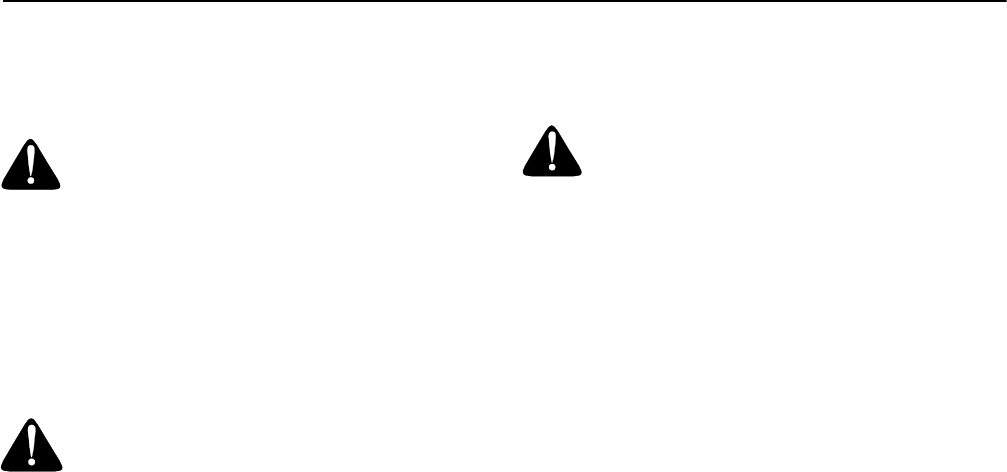
10
Chute Tilt Control
The distance snow is thrown can be adjusted by
adjusting the angle of the chute assembly. Move the
chute tilt control forward to decrease the distance, and
towards the rear to increase the distance.
Discharge Chute
The angle of the discharge chute controls the distance
that the snow is thrown. Tilt the discharge chute up for
greater distance; tilt down for less distance.
Fuel Shut-off Valve (If equipped)
If your snow thrower is equipped with a fuel shut-off
valve, locate it under the fuel tank. This valve controls
fuel flow from the tank. Always make certain it is in the
open (vertical) position before attempting to start the
engine. See Figure 13.
Headlight
The headlight is on whenever the engine is running.
Throttle Control
The throttle control is located on the engine. It regulates
the speed of the engine.
Safety Ignition Key
The safety ignition key must be fully inserted in the
switch before the unit will start. Remove key when snow
thrower is not in use. Do not attempt to turn the key.
Skid Shoe
The position of the skid shoe is determined by the
condition of the ground from where snow has to be
removed. Refer to page 8 for details.
SECTION 4: OPERATING YOUR SNOW THROWER
Before Starting
WARNING: Read, understand, and follow
all instructions and warnings on the machine
and in this manual before operating.
• The spark plug wire was disconnected for safety.
Attach spark plug wire to spark plug before starting.
Gas and Oil Fill-Up
• Check oil and gasoline level and add if necessary.
Follow related instructions in the seperate engine
manual packed with your snow thrower.
WARNING: Use extreme care when
handling gasoline. Gasoline is extremely
flammable and the vapors are explosive.
Never fuel the machine indoors or while the
engine is hot or running. Extinguish cigarettes,
cigars, pipes and other sources of ignition.
To Start Engine
• Make certain the fuel cut-off valve, if your snow
thrower is so equipped, is in OPEN position.
• Make certain the auger and drive clutch levers are
in the disengaged (released) position.
• Move throttle control up to FAST position. Insert
ignition key into slot. Make sure it snaps into place.
Do not turn key
.
NOTE: Engine will not start unless ignition key is
inserted into ignition slot in carburetor cover.
Electric Starter
WARNING: The electric starter is equipped
with a grounded three-wire power cord and
plug, and is designed to operate on 120 volt
AC household current. It must be used with a
properly grounded three-prong receptacle at
all times to avoid the possibility of electric
shock. Follow all instructions carefully prior to
operating the electric starter.
• Determine that your house wiring is a three-wire
grounded system. Ask a licensed electrician if you
are not certain.
• If your house wiring system is not a three-wire
grounded system, do not use this electric starter
under any conditions.
• If your home electrical system is grounded, but
a three-hole receptacle is not available, one should
be installed by a licensed electrician before using
the electric starter.
• If you have a grounded three-prong receptacle,
proceed as follows.
• Rotate choke knob to OFF position.
• Connect power cord to switch box on engine. Plug
the other end of power cord into a three-prong 120-
volt, grounded, AC receptacle.
• Push starter button to crank engine. As you crank
the engine, move choke knob to FULL choke
position.
• When engine starts, release starter button, and
move choke gradually to OFF. If engine falters,
move choke immediately to FULL and then
gradually to OFF.
